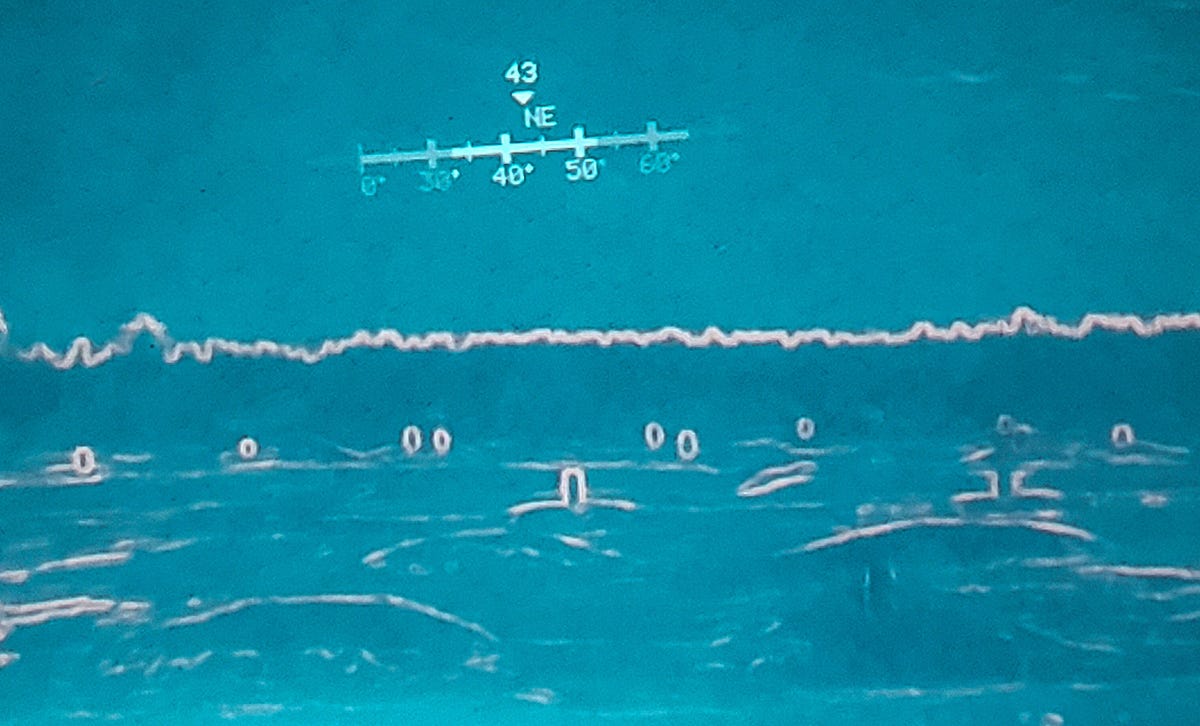Knowledge is the commodity education deals in. In the UK, just prior to the general election that he lost, Rishi Sunak, the then Conservative Prime Minister, told his Party conference that he would see that “proper knowledge” was taught in schools rather than “Labour ideology.” As I write, the new Labour government is launching its own Curriculum Review. This happens against a background where school inspectors look for a knowledge-rich curriculum. This article explores what public theologians might have to say about “proper knowledge” in education.
Neutrality
Just a little over fifty years ago, I sat in an undergraduate class listening to our highly acclaimed philosophy professor, Paul Hirst. He told us that there were two types of education – sophisticated that depends on reason alone and primitive that depends on faith. (No value judgements implied here!) As Steven Pinker, the enlightenment philosopher, recently wrote: “To take something on faith means to believe it without good reason.”[1] In other words, faith has nothing to do with proper knowledge. Proper knowledge is faith neutral.
At the heart of the neutrality thesis is the notion that education is about the transmission of settled facts. These facts, it is said, are either derived from reason alone or are the agreed consensus of society. The epitome of the former is the popular view of scientific knowledge and of the latter is the British government’s requirement that schools teach so-called British values. Settled facts are neutral, constituting the proper knowledge to be passed on through the education system.
Christian Reformed theologians and philosophers have long challenged this flawed neutrality hypothesis, offering instead the notion of worldview. By this they mean that our knowledge of the world cannot be separated from our Christian faith. This echoes missiologist Lesslie Newbigin’s observation that western culture separates fact from value. His prescription was that a missionary encounter with this culture should draw on Michael Polanyi’s insight that all knowledge is personal. What then are the implications of this Christian understanding of worldview and knowledge for teachers in a public education system?
Distinctively Christian
The Church of England oversees 4000+ state-funded schools that it wants to be “distinctively Christian.” Its inspection system requires them to have a theologically rooted vision and to be able to demonstrate how that is implemented. But what does it mean to teach knowledge in a distinctively Christian way, for it to be personal?
I will seek to offer an answer to this question with a case study drawn from a research project investigating how teachers interpreted the aspiration to be distinctively Christian.[2] It involves a Physical Education teacher working with a group of 12-year-old boys.
As a Christian, James (a pseudononym) was concerned to challenge the impact that professional soccer had on his students. Overwhelmingly they looked to their superhero players as models of what success meant in life – fame, wealth, adulation, etc. Their view of sport was shaped by the aspiration to become an elite performer. James wanted to offer them a different model of success based on being a servant leader. The case study is a lesson on the push-pass in field hockey. This started with a whole class demonstration of the techniques involved. Then he put the boys into pairs and asked them to improve each other’s techniques. The assignment was to report back on how best they could improve their partner’s performance. In the subsequent focus group with the researchers, the pupils were asked what they thought they were doing in the lesson. The response was: “We were helping each other to become better hockey players”. This lesson is but one example of how the teacher reframed his whole approach.
There are several important things to note here:
This was not a sports lesson with a Bible message tagged on. The teacher did not turn his lesson into a religion class. Rather he framed his teaching with the concept of coaching rather than the widely assumed concept of elite performance, thereby reshaping the pupils’ understanding of the purpose of sport. By so doing, he offered a theologically rooted, anthropological vision of what it means to flourish as a human being and what constitutes success in life.
It was the pedagogical practice employed in the lesson that conveyed the distinctively Christian approach to technical knowledge as much as the words of the teacher.
The knowledge offered in this class was not simply the settled facts about how best to execute the push pass, but was the personal knowledge of how sport is perceived as a significant human activity.
Knowledge and Worldview in Education
This approach to knowledge draws on work in biblical hermeneutics (interpretation) by scholars like Anthony Thiselton and Kevin Vanhoozer. The insights they offer are that ontological truth matters and is revealed through Scripture but reading Scripture is a fallible human activity that is influenced by the reader’s context, interests and worldview and for that reason interpretations can be wrong. A deplorable example is how the South African Dutch Reformed Church found apartheid in the Bible. Biblical hermeneutics alerts us that knowledge is generated by human interpretation and the fallibility of the human persona means that people disagree on these interpretations. To be a scholar according to biblical hermeneutics is to seek true understanding of the world through the lens of biblical ideas whilst maintaining a healthy suspicion of the way that our personal worldview can distort that. It is to remember that although Scripture teaches with clarity, the implications of what it teaches in the concrete experience of day-to-day life is open to legitimate disagreement. Being a scholarly knower therefore entails developing virtues like humility in relation to our own views and curiosity about those of others alongside the commitment to there being truth that applies to all humans.
How then do these insights from biblical hermeneutics impact on a Christian contribution to knowledge in public education? Our PE teacher illustrates this well. First there are anthropological truths that Christians hold to which can be drawn on, then explained to and discussed with pupils. These often are deeply attractive to others as well as being increasingly counter cultural. They offer an alternative framing whereby teachers and pupils can see their subject anew. This is what Newbigin described as a missionary encounter with culture where a Christian contribution to the common good is offered. Education is never neutral. James’ offering of servant leadership as opposed to elite performance in sport as the framing concept for his approach to PE is a telling example.
However, and something which Christians sometimes ignore, learning is about making wise interpretive judgements for oneself and not just accepting what others tell you. This means that Christian teachers need to be open as to how their worldview is shaping their work. It also means that students need to become aware of the impact of their own worldview on the development of their personal knowledge. Learning should never be presented to them as just a process of collecting and regurgitating information from memory. It is rather learning to make wise judgements.
Finally, discovering true knowledge requires the exercise of virtues like humility, curiosity, empathy and so forth. It entails acknowledging that other people reach different conclusions because their worldview is different and learning to disagree well in the public realm. Knowledge and character are conjoined siblings.
I finish with two examples of how this aspiration is currently manifested in English state schools.
First, by emphasizing how knowledge growth and character development go hand-in-hand. For example, the Emmanuel Schools Foundation, a group of Christian schools, describes itself as: “Providing Christian-ethos schools of character for the whole community.” In these, knowledge acquisition is seen as the growth of persons and not merely as the accumulation of information in the long-term memory.[3]
Second, in Religious Education.[4] This subject is compulsory for all students and embraces the major religious communities and humanists. It has recently shifted from a World Religions approach, which aims to give pupils information about different religious and non-religious traditions, to a Religion and Worldviews approach, which encourages pupils to reflect on their own worldview development through their study of religious and non-religious traditions.


Conclusion
A Christian understanding of “proper knowledge” is then that it is personal. It cannot be amputated from a person’s identity, shaped as it is by their worldview. It is never faith-free. This insight has massive implications for education. Instead of being largely transmission of neutral, settled information, it is learning to be a wise, hermeneutical scholar. This entails a commitment to the search for truth and to reflexivity on the impact of our worldview on our own and others’ interpretation of what we are taught. This means that growing in knowledge is about insight into our personal worldview and those of others.
Trevor Cooling is Emeritus Professor of Christian Education at Canterbury Christ Church University, UK.
[1] Steven Pinker, Enlightenment Now: The Case for Reason, Science, Humanism and Progress (London: Penguin, 2018), 30.
[2] Trevor Cooling et al., Christian Faith in English Church Schools: Research Conversations with Classroom Teachers (Oxford: Peter Lang, 2016); and David I. Smith, On Christian Teaching (Grand Rapids: Eerdmans, 2018).
[3] https://www.emmanuelcollege.org.uk/about/emmanuel-schools-foundation/
[4] https://www.theosthinktank.co.uk/research/2020/10/21/worldviews-in-religious-education






